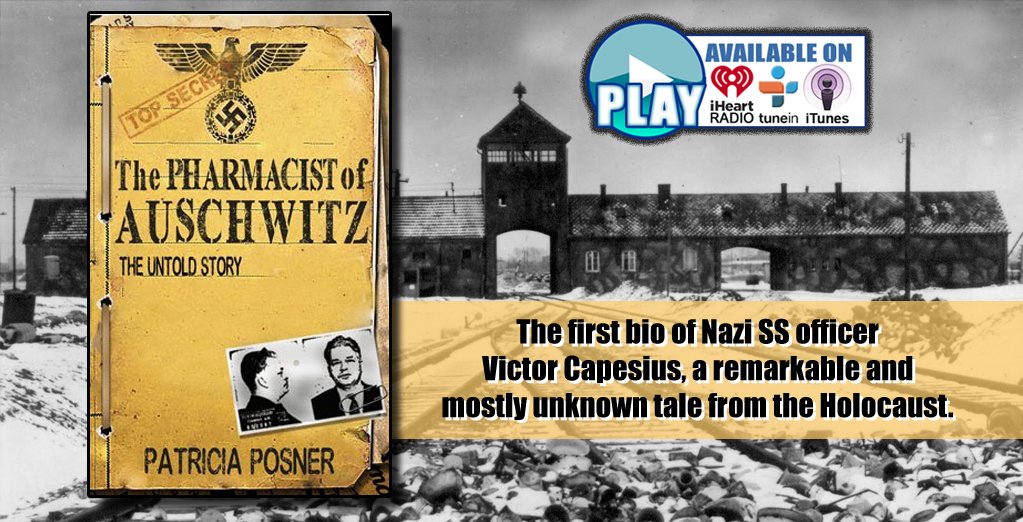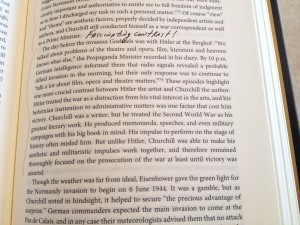The following interview was done with the award-winning historian, Jonathan Rose. Rose teaches at Drew University.
Moore: Books about Winston Churchill abound. In light of the glutted Churchillian landscape, what motivated you to write this particular book?
Rose: Literature is the one aspect of Churchill’s life that hardly anyone has explored in any depth. And yet, even before he entered Parliament, he had established himself as a tremendously popular author. He wrote history, biography, war reportage, literary criticism, futurology, even a novel. Moreover, his political agenda was profoundly shaped by what he read and wrote. So Churchill is too important to be left to the political historians: you won’t fully understand him unless you study him as a man of letters.
Moore: I was surprised to learn how much Churchill utilized various insights gained from studying the American Civil War. Would you unpack that some for us?
Rose: His American grandfather, Leonard Jerome, was part-owner of the New York Times and a supporter of the Union cause, even in the face of the Draft Riots of 1863. So he was an inspiration for Winston, who saw no clear boundaries between warfare and journalism. And in his lifelong struggle to preserve the British Empire, Churchill’s model was the Civil War, which he viewed as a successful effort to preserve the American Empire. He didn’t quite see that there were important differences between the two cases.
Moore: It is fascinating to see how much the theater influenced Churchill in his various public roles. Describe that a bit.
Rose: All his life he was a passionate theatergoer. He learned his brilliant oratorical skills by watching actors at work. As a parliamentary performer, he was always on stage and in character. And his distinctive wit owed much to his two favorite dramatists, Oscar Wilde and George Bernard Shaw. The theatre offered Churchill a script for political action: as Home Secretary he enacted penal reforms after seeing John Galsworthy’s prison drama Justice. And though he never wrote a play, his history of the Second World War is written with a fine sense of drama, timing, and climax.
Moore: Ecclesiastes 12:10 speak of the preacher searching “to find just the right words.” Churchill spent much time getting his words right. What can we learn from his care and concern over language?
Rose: He dictated most of his books and speeches to a secretary, then he would grab the typescript from her and scribble extensive revisions in ink. That’s why his writing had an oratorical resonance. Sometimes, when delivering a speech, he would appear to hesitate, grope for the right word, and inevitably hit on it. But that was an act: in fact his speeches were carefully scripted. There he was poles apart from today’s politicians, who robotically repeat catchphrases pretested on focus groups.
Moore: You mention some of the favorite books of both Churchill and Hitler. It is interesting to see Don Quixote listed as one of Hitler’s favorite books. Did more grandiose stories spark Hitler’s imagination?
Rose: Hitler read compulsively: racist tracts, creepy occult books, and Wild West stories by Karl May, a German author who never ventured west of Buffalo, New York. He loved The Merchant of Venice, and (still more chillingly) his personal library included a booklet on poison gas.
Moore: Political conservatives love to retrieve Churchill for inspiration, but most don’t seem to know of Churchill’s concern over what we call today, “crony capitalism.” Why is this particular concern of Churchill’s not well known?
Rose: This was a crusade that Churchill launched early in his political career, before 1906, and it drove him to repudiate the Conservative Party. Inspired by Adam Smith, he believed in free market capitalism tempered by a social safety net, but he was deeply hostile to any form of corporate welfare. In fact, if libertarian conservatives and Tea Partiers knew better this side of Churchill, they would admire him even more.
Moore: Churchill was not completely alone in appreciating the threat of Nazism, but many did not. What made Churchill so prescient?
Rose: Churchill always hated totalitarian regimes, starting with the schools he attended. And you could say he recognized the threat of Nazism when Hitler was still a schoolboy. Churchill’s 1899 novel, Savrola, was a third-rate political melodrama, but also uncannily farsighted: it’s about a brilliant orator who fights an unspeakably wicked Middle European dictator. So when the actual Hitler appeared on the political stage, Churchill leapt into the heroic role he had created thirty years earlier.
Moore: One of David McCullough’s favorite books is Churchill’s little book on painting. Painting was more than a hobby for Churchill, wasn’t it?
Rose: Certainly, it was also therapy. The Gallipoli fiasco plunged him into a deep depression, and painting pulled him out of it. It gave him a sense of control when his life was spinning apart. He compared composing a work of art to planning a military campaign – except that when you brush paint on a canvas, it stays put.
Moore: Many reading this interview are Christians. Many minister in various full-time vocational capacities. What are a few things these folks could benefit from in reading your book?
Rose: They may be surprised to learn that Churchill grappled seriously and deeply with theological questions. He wasn’t a conventional Christian, but he always had a clear moral vision and fought for it relentlessly.


